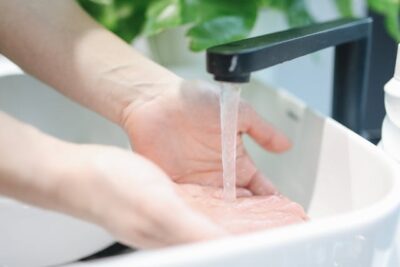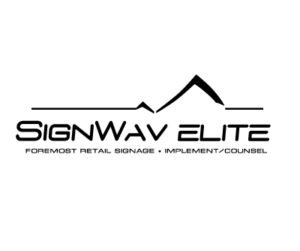Owning an old house can be a truly enriching experience. These homes charm with their unique architectural details and stories embedded within their walls. However, living in an old house also comes with its own set of challenges, particularly when it comes to maintenance. Among the most pressing concerns are plumbing issues that, if not addressed, can lead to serious damage and costly repairs. This article will guide you through the most common plumbing problems found in older homes and provide practical advice on how to address them.
⦁ Outdated Pipe Materials
Many old houses still contain plumbing made from materials that were common decades ago but are now known to pose health risks or have durability issues. Lead pipes, for instance, can leach lead into your drinking water, posing serious health hazards, while galvanized steel pipes are prone to corrosion and clogging. If you own an old home, it’s important to identify the type of piping material used and consider replacing pipes that are made from hazardous or outdated materials. This upgrade is crucial not only for safety but also for improving the longevity and efficiency of your plumbing system.
⦁ Hidden Leaks
Hidden leaks pose a serious problem in old houses, as they can go undetected for a long time, causing extensive damage to the structure and foundation of the home. Signs of hidden leaks include unexplained spikes in water bills, musty odors, or mold and mildew growth. It’s crucial to investigate any potential signs of leaks early by using moisture meters or thermal imaging to detect unusual moisture within walls or under floors. This issue often requires the intervention of professional emergency plumbing services to resolve it effectively. Early detection and repair can save significant repair costs and structural damage down the line.
⦁ Corrosion and Wear
Corrosion is a natural enemy of any plumbing system but is particularly prevalent in older homes. Over time, pipes made of metal can deteriorate due to oxidation, which weakens the pipes and leads to leaks, water damage, and reduced water quality. Signs of corrosion include discolored water, reduced water pressure, and leaks. It is important for homeowners to regularly inspect their pipes for any signs of wear and to address these issues promptly to prevent extensive damage.
⦁ Tree Root Intrusion
Older homes are often surrounded by mature trees, whose roots grow wide and deep. Unfortunately, these roots can be drawn to the moisture of sewer lines, leading to one of the most problematic issues in residential plumbing: tree root intrusion. Roots can grow into the pipes, causing blockages and potentially severe pipe damage that can be expensive to repair. Preventative measures include regular sewer line inspections and installing barriers to discourage root growth toward the pipes.
⦁ Poor Water Pressure
Many residents of old homes experience issues with poor water pressure, which can be due to a variety of reasons such as corroded plumbing, old fixtures, or inadequately sized supply pipes. Low water pressure affects the efficiency of showers, faucets, and appliances, making daily tasks frustrating. To resolve this issue, it is important to first identify the cause by checking for visible leaks, testing different fixtures independently, and possibly consulting with a plumber to assess whether the water supply lines are adequately sized and free from blockages.
⦁ Outdated Fixtures
In many old houses, original plumbing fixtures such as faucets, showerheads, and toilets may still be in use. While they add to the home’s historic charm, these fixtures are often less efficient and more prone to malfunctioning. For instance, old toilets might use more water per flush than is necessary, and worn-out washers in faucets can lead to drips and leaks. Updating these fixtures can significantly reduce water waste and improve functionality. When choosing new fixtures, consider opting for those that maintain the aesthetic of your home while offering modern water conservation features.
⦁ Faulty Sewer Lines
The sewer lines in older homes are susceptible to a range of problems, from blockages and back-ups to total structural failures like collapses or significant cracks. These issues are typically due to the age of the materials, previous repairs not up to modern standards, or external pressures from ground movement or tree roots. Recognizing the signs of sewer line problems early on, such as foul odors, slow draining, or unusual gurgling sounds, can save a homeowner from more drastic issues down the line. It is advisable to have sewer lines inspected by professionals every few years, particularly in old homes, to assess their condition and function.
⦁ Inefficient Water Heaters
Water heaters in old houses often suffer from inefficiency and frequent breakdowns, which can be frustrating and costly. Older models are less energy-efficient, leading to higher utility bills and increased maintenance requirements. These heaters may also struggle to provide a consistent supply of hot water. Homeowners should consider the age of their water heater and watch for signs like fluctuating water temperatures, rumbling noises, or water discoloration, which indicate it’s time for a repair or replacement. Upgrading to a newer, more efficient model not only reduces energy consumption but also improves reliability and water quality.
⦁ Leaky Faucets and Toilets
Leakages are common in old plumbing systems, especially in fixtures like faucets and toilets. These leaks are not only annoying but can also lead to significant water wastage and increased water bills. Often, these issues can be fixed by replacing worn-out washers and seals or upgrading to new fixtures. Homeowners should regularly check their faucets and toilet bases for drips and leaks and address these issues promptly to prevent further water damage and wastage.
⦁ Clogged Drains
Older homes frequently face the issue of clogged drains, which can be caused by years of accumulated sediments and residue inside narrower, older pipes. This buildup reduces the effective diameter of the pipes, making them more prone to blockages. Regularly using a mixture of hot water, baking soda, and vinegar can help maintain clear drains. For more severe clogs, it may be necessary to snake the drain or call a professional plumber.
Preserving Your Old Home’s Plumbing
Maintaining the plumbing in an old house can be a challenging but rewarding task. Addressing common issues such as inefficient water heaters, leaky fixtures, and clogged drains not only ensures the functionality and efficiency of your plumbing system but also helps preserve the historical integrity of your home. Regular inspections, timely repairs, and upgrades where necessary play critical roles in managing these plumbing challenges effectively. By taking proactive steps to maintain their plumbing systems, homeowners can protect these properties for future generations while enjoying their unique character today.










 The 2024 virtual Men’s Round Table will be held Q4, 2024, date TBD.
The 2024 virtual Men’s Round Table will be held Q4, 2024, date TBD.













